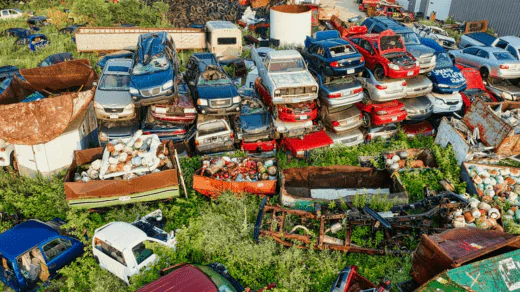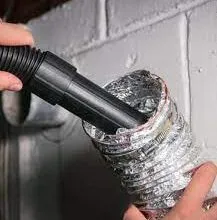How the Growing Market of Junk Cars Impacts the Economy

The market for junk cars has been steadily growing in recent years, and its impact on the economy is becoming more and more significant. With a wide range of factors driving this growth, it’s crucial to understand how this industry affects our economy as a whole. In this article, we’ll dive into the details of how the growing market of junk cars impacts our economy and explore its potential implications for the future. Let us further explore this robust market and see what insights we can uncover.
Junk Yards and Recycling Facilities
One of the main players in the junk car market is junk yards and recycling facilities. These businesses purchase old, damaged vehicles from individuals or other companies and then sell their parts or scrap metal for a profit. As the demand for used car parts continues to rise, so does the profitability of these businesses. Additionally, recycling facilities play a crucial role in this market by processing scrap metal from junk cars and turning it into new products, reducing the need for raw materials and boosting overall economic growth.
Job Creation
The growth of the junk car market has also had a significant impact on job creation. With more demand for junk cars comes an increased need for people to work at junk yards, recycling facilities, and other related businesses. This not only provides job opportunities for individuals but also contributes to the overall economy by boosting employment rates and increasing consumer spending power.
Effects on Small Businesses
Moreover, the growth of the junk car market has also benefited small businesses in various ways. Many small companies specialize in buying and selling junk cars or providing services such as towing or vehicle disposal. As the market continues to expand, these businesses have more opportunities to thrive and grow, contributing to local economies.
Environmental Impact
Apart from its economic benefits, the growing market of junk cars also has a positive impact on the environment. By reusing and recycling old vehicles, we can reduce our carbon footprint and conserve natural resources. Additionally, proper disposal of hazardous materials from junk cars can prevent pollution and protect our ecosystem.
Government Incentives
Recognizing the environmental benefits of recycling junk cars, many governments around the world offer incentives to encourage this practice. These may include tax breaks for businesses that recycle or discounts on registration fees for environmentally-friendly vehicles. Such measures not only promote eco-friendliness but also stimulate economic growth by supporting the market for junk cars.
The Rise of the Junk Car Market
One of the key drivers behind the surge in the junk car market is the increasing demand for used car parts. As cars become more complex and expensive to maintain, many people turn to purchasing salvaged parts from junk cars as a cost-effective solution. Moreover, with advancements in technology and materials, cars are becoming more durable, leading to a higher volume of older vehicles on the roads. This trend has resulted in an abundance of usable parts available through scrap yards and salvage companies.
Another factor contributing to this growth is the rise of online platforms that facilitate buying and selling of junk cars. These websites provide a convenient way for individuals and businesses to get rid of their old vehicles while also offering a potential source of income. This ease of access and increased visibility have expanded the market’s reach, attracting more buyers and sellers.
The Economic Impact
The steady increase in demand for junk cars has not only created a thriving secondary market but also has had a significant impact on the overall economy. Ace Auto Salvage is one of the many junk cars companies that has helped boost the economy by circulating used parts across multiple markets. These parts are typically sold for a fraction of the cost of new ones, making them an attractive option for car owners looking to save money on repairs. This has not only saved consumers money but has also created jobs and stimulated economic growth.
Here are some ways this industry is impacting our economy:
- Job Creation: The growing market for junk cars has led to an increase in employment opportunities in various sectors such as scrap yards, salvage companies, and transportation services. This growth means more job openings and economic stability for individuals working in these fields.
- Boosting Local Economies: Junk car businesses often operate on a local level, with many small businesses and individual sellers involved in the process. This creates a positive impact on local economies, as the money earned stays within the community.
- Environmental Benefits: The junk car market plays a crucial role in recycling and reducing waste. By salvaging usable parts from old cars, it helps to reduce the need for new production and can even prevent harmful chemicals from leaching into the environment.
Future Implications
As the demand for used car parts and scrap metal continues to rise, so does its potential impact on the economy. Here are some possible implications that we may see in the future:
- Increased Competition: With more players entering this growing market, there could be increased competition among businesses. This could lead to a decrease in prices, making it more affordable for consumers to purchase used car parts.
- Shift in the Automotive Industry: The rise of the junk car market may also result in changes within the automotive industry. Manufacturers may need to adapt their production methods and designs, considering the potential for salvaged parts usage.
- Economic Instability: While the junk car market is currently thriving, any significant changes or disruptions in this industry could have an adverse effect on the economy. It’s essential to monitor and regulate this market carefully to prevent any potential negative impacts.
Future Outlook
The future of the junk car market looks bright as its impact on the economy continues to grow. However, there are also potential challenges that need to be addressed, such as ensuring safe and responsible disposal of hazardous materials from these vehicles. With proper regulations and measures in place, the market for junk cars can continue to thrive while also contributing positively to our economy and environment.
The growing market of junk cars has far-reaching effects on our economy that go beyond just buying and selling old vehicles. It creates employment opportunities, boosts local economies, and promotes environmental sustainability. As this market continues to expand, it’s crucial to monitor its impact and ensure responsible practices to sustain its growth for years to come. So next time you see a junk car on the road or advertised for sale online, remember the significant role it plays in our economy. Keep in mind the potential future implications and how this market can continue to positively impact our society. Let us continue to explore this robust industry and uncover more insights into its economic influence.





